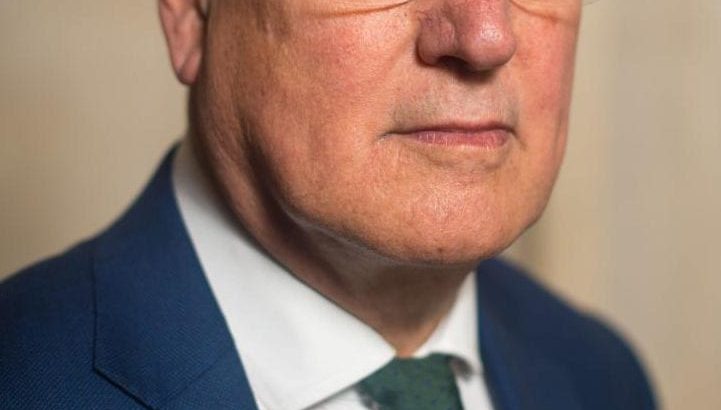Reino Unido/Diciembre de 2016/Autor: Josie Gurney-Read/Fuente: The Telegraph
RESUMEN: La brecha en el número de buenas y excelentes escuelas secundarias en el norte y sur de Inglaterra ha crecido este año, dijo el jefe saliente de Ofsted. Sir Michael Wilshaw advirtió que la desigualdad educativa contribuía a los sentimientos de «negligencia» que llevaron al voto Brexit y dijo que la división entre regiones estaba «desestabilizando el país». El año pasado, el organismo de vigilancia de las escuelas informó una diferencia del 11 por ciento en la proporción de buenas y excelentes escuelas secundarias en las regiones del Norte y Midlands en comparación con el resto del país. Pero las cifras revelaron hoy que la brecha se había ampliado a 12 puntos porcentuales. Significa que hay 135,000 más estudiantes de secundaria que se enseñan en escuelas con bajo rendimiento en el norte de Inglaterra que en el sur.
The gap in the number of good and outstanding secondary schools in the North and South of England has grown this year, the outgoing head of Ofsted has said.
Sir Michael Wilshaw warned that educational inequality contributed to feelings of «neglect» which led to the Brexit vote and said that the divide between regions was «destabilising the country».
Last year, the schools watchdog reported an 11 per cent difference in the proportion of good and outstanding secondary schools in the regions of the North and Midlands compared with the rest of the country.
But figures today revealed that the gap had widened to 12 percentage points.
It means that there are 135,000 more secondary school children being taught in under-performing schools in the North of England than in the South.
Speaking at the launch of the Ofsted annual report, Sir Michael Wilshaw warned that «fissures» in education standards contributed to feelings of «alianation» that led to the Brexit vote.
«Education has the power to bring people together, but it can also divide, » he said. «Regions that are already less prosperous than the South are in danger of adding a learning deficit to their economic one.
«Recent political history shows what can happen when large parts of the population feel alienate because they feel they are not being dealt with fairly.»
«It breeds into the sense that [people in the North and Midlands] are not getting a fair crack of the whip,» he continued.
«If they sense that their children and young people are being denied the opportunities that exist elsewhere that will feed into the general sense that they are being neglected.»
«It wasn’t just about leaving the European Union and immigration,» he continued, «it was the sense of disconnection with Westminster.»
According to today’s report, there are now more than twice as many secondary schools judged to be inadequate in the North and Midlands (98) compared with the South and East (44), and of the 10 worst performing local authority areas, seven were north of The Wash,
Furthermore, of the 13 local authority areas where every secondary school inspected was rated either good or outstanding this year – all were in London or the South East of England.
In Liverpool, half of all secondary schools were rated less than good, compared with three in 10 for Manchester, and just one in 10 for inner London.
Sir Michael said: «Shockingly, the North and the Midlands are home to nearly three-quarters of the secondary schools judged inadequate for leadership.»
«This is not a result of unfair inspection practice. Every Ofsted region in the North and Midlands is below the national level on every measure; Progress 8, Attainment 8 and the Ebacc»
He added: «The geographical divides within the country are most acute for children on free school meals, the most able pupils and those who have special educational needs.
The North West was described as being of «particular concern», with the proportion of its secondary schools rated good or outstanding only increasing by 3 percentage points since 2011 – well below the national percentage points increase of 13.
Speaking in what was his final speech as chief inspector, Sir Michael called on the Government to appoint a «high profile minister for the North», to «bang heads together across the regions and make sure action is urgently taken.»
Today’s report also showed that:
- For the sixth year in a row, the proportion of good and outstanding nurseries, pre-schools and childminders has risen to 91 per cent;
- The proportion of good and outstanding primary schools has also risen from 69 per cent to 90 per cent in five years;
- There are 1.8 million more pupils in good or outstanding maintained schools than in 2010;
- Pressures on the recruitment of secondary school teachers have not abated with 15 out of 18 curriculum subjects with unfilled training places this year.
School Standards Minister Nick Gibb said: «We want every child to have access to an excellent education, regardless of their background or where they live.
«We know there is more to do, and that’s precisely why we have set out plans to make more good school places available, to more parents, in more parts of the country – including scrapping the ban on new grammar school places, and harnessing the resources and expertise of universities, independent and faith schools.
«As the Secretary of State has made clear, we are also determined to put technical education in this country on a par with academic routes.»
Fuente: http://www.telegraph.co.uk/education/2016/12/01/north-south-divide-good-secondary-schools-widening-warns-outgoing/








 Users Today : 131
Users Today : 131 Total Users : 35459726
Total Users : 35459726 Views Today : 219
Views Today : 219 Total views : 3418191
Total views : 3418191